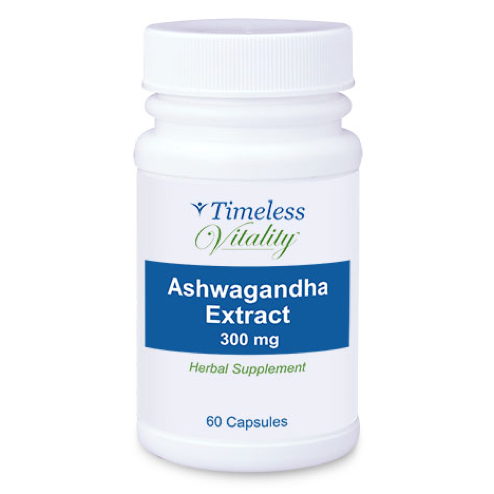 Ashwagandha is an ancient medicinal herb that has been used in Ayurvedic medicine for several thousand years. The plant is a shrub with yellow flowers that is native to India and North Africa. Extracts from its roots and leaves can be used to treat several conditions.
Ashwagandha is an ancient medicinal herb that has been used in Ayurvedic medicine for several thousand years. The plant is a shrub with yellow flowers that is native to India and North Africa. Extracts from its roots and leaves can be used to treat several conditions. Ashwagandha is considered an adaptogen herb, which means it helps the body to adapt to and manage stress along with aiding the body in normalizing itself. It is also considered to be a Raysayana, which maintains youth, and increases physical and mental strength. The herb is quite commonly used, which isn’t surprising considering the variety of conditions that it may help with:
- Stress and/or adrenal fatigue
- Anxiety
- Depression
- Hormone imbalances
- Overactive or underactive thyroid
- Memory disorders
- Sexual function and fertility disorders
- Inflammation
It also has been shown to boost the immune system, aid stamina and endurance, and increase muscle strength. Some studies have also shown that it can reduce tumor growth.
Perhaps its most well known benefit is that it works as a natural anxiety remedy. In 2009, there was a study published in PLOS One, which showed that Ashwagandha was as effective as pharmaceutical drugs Lorazepam and Imipramine, but without any adverse side effects. This study included two groups totaling 75 people and lasted for 12 weeks. After the study period, results showed that the group who received Ashwagandha had anxiety scores that had lessened by 55%. The other group had undergone psychotherapy and their scores decreased only by 30.5%. Most anti-anxiety pharmaceutical drugs have side effects such as drowsiness, insomnia, loss of sexual desire, along with other side effects such as increased appetite and weight gain. However, the Ashwagandha control group had no such issues.
Another stress related disorder that this adaptogen herb helps with is adrenal fatigue. The adrenals are endocrine glands that regulate the hormones cortisol and adrenaline, which are both quite reactive to stress. Adrenal fatigue can also be caused by exposure to heavy metals, caffeine, smoking cigarettes, and low immunity. Feeling tired and depleted all the time can be symptoms of adrenal fatigue and cortisol levels should be tested. Adrenal fatigue can easily become chronic and has an adverse effect on one’s day to day life and feelings. The three remedies most prescribed by doctors to treat this debilitating condition are 1) eliminate stimulants, 2) go to bed by 11:00pm, and 3) adaptogens because of their strong normalizing effect on the body’s reactions and disorders with stress.
While the effects of Ashwagandha on depression are less noticed than its strong anti-anxiety properties, studies have shown that It can still help in treating this disorder. Research has shown that it is best used for chronic issues, however. If depression is caused by an isolated incident such as a death of a loved one, or a bad breakup, the effects of the herb are less notable than if caused by chronic or long term depression. Because Ashwagandha improves resistance towards stress, it has a positive effect on a person’s well being overall.
It should be noted that there was a 2000 experimental study involving rats wherein Ashwagandha was compared to the anti-depressant drug, Imipramine. Rats were exposed to “behavioral despair” and “learned helplessness”. Because the Ashwagandha was shown to be equally effective in treating the disorder as the pharmaceutical drug, Imipramine, it was determined that Ashwagandha can be effectively used as a mood stabilizer when clinical depression has been diagnosed.
Studies have also been done on the effects of Ashwagandha on thyroid disorders. What is amazing is that this herb can help with both under-active (Hashimoto’s disease), AND overactive (Grave’s disease) thyroid problems. In 2017, there was a pilot study which was published in the Journal of Alternative and Complementary Medicine. The 50 people who were participating in the study had been diagnosed with a thyroid disorder, but did not display any obvious symptoms of deficiency. During the study, the treatment group received 600 milligrams of Ashwagandha root extract daily. The control group only received starch as a placebo. The results showed that Ashwagandha improved serum thyroid stimulating hormone (TSH) and thyroxine (T4) levels significantly compared to the placebo. The conclusion was that Ashwagandha may be beneficial for patients with hypothyroidism.
Because there are so many reported benefits of this herb, more and more research is continually being done in the Western World. Dosage depends on several factors. Natural products can interfere or interact with certain medical conditions and/or drugs. Always consult your doctor or pharmacist before using. Pregnant women should never take Ashwagandha because the effect of it on the unborn child has not yet been determined.
What is the cost?
$14 for 60 capsules. See the link above for all info.
More details like the cost and how many pills per bottle.?
Sorry Brenda, I left out the link to the online store that has the details. Here is is: https://www.renewedvitalitymd.com/product/ashwagandha-300-mg-60c/
Interested, but advised earlier could cause major flare Addison’s, like Rhodiola rec for Fibro/CFS; Holy basil, and Cat’s claw adversely affect other conditions. Loath to bring on needed detox, feel so bad. What helps one condition (2 drops black seed oil, 2 t. elderberry syrup) makes others worse. Should I anyway? BTW, still looking for tolerable probiotic.
Hi Vicki, You may want to consult with your doctor first. If you do try it, I recommend keeping notes on any symptom improvement or worsening on a daily basis. Here’s a link to our online store that has a bit more info. https://www.renewedvitalitymd.com/product/ashwagandha-300-mg-60c/